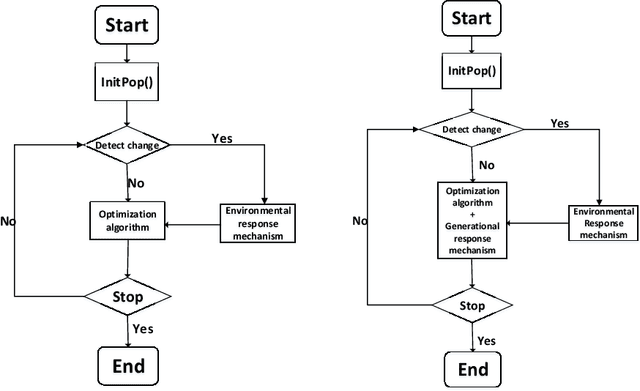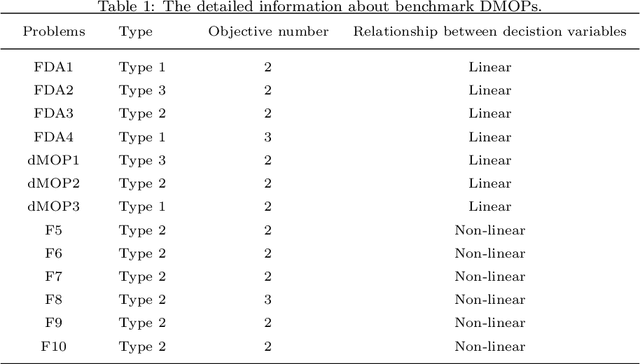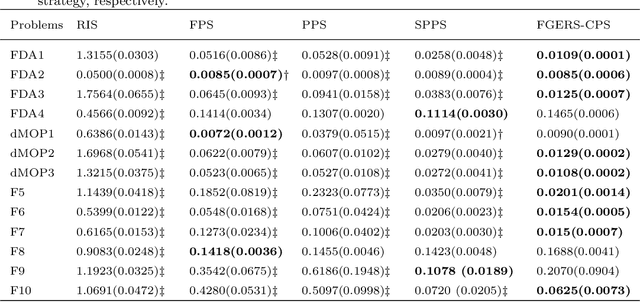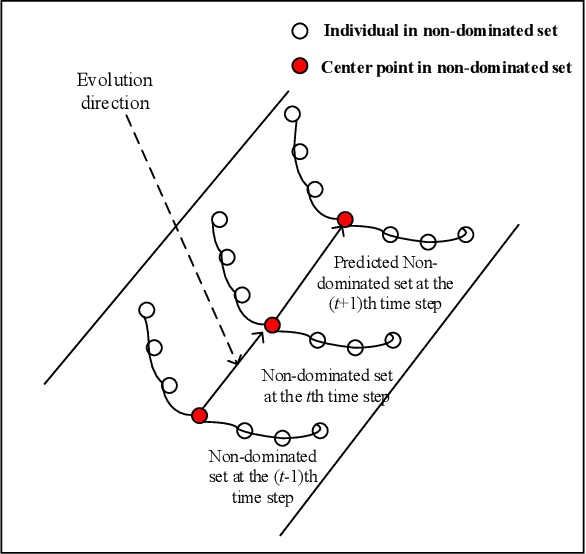A Framework Based on Generational and Environmental Response Strategies for Dynamic Multi-objective Optimization
Paper and Code
Jul 06, 2022



Due to the dynamics and uncertainty of the dynamic multi-objective optimization problems (DMOPs), it is difficult for algorithms to find a satisfactory solution set before the next environmental change, especially for some complex environments. One reason may be that the information in the environmental static stage can not be used well in the traditional framework. In this paper, a novel framework based on generational and environmental response strategies (FGERS) is proposed, in which response strategies are run both in the environmental change stage and the environmental static stage to obtain population evolution information of those both stages. Unlike in the traditional framework, response strategies are only run in the environmental change stage. For simplicity, the feed-forward center point strategy was chosen to be the response strategy in the novel dynamic framework (FGERS-CPS). FGERS-CPS is not only to predict change trend of the optimum solution set in the environmental change stage, but to predict the evolution trend of the population after several generations in the environmental static stage. Together with the feed-forward center point strategy, a simple memory strategy and adaptive diversity maintenance strategy were used to form the complete FGERS-CPS. On 13 DMOPs with various characteristics, FGERS-CPS was compared with four classical response strategies in the traditional framework. Experimental results show that FGERS-CPS is effective for DMOPs.
 Add to Chrome
Add to Chrome Add to Firefox
Add to Firefox Add to Edge
Add to Edge